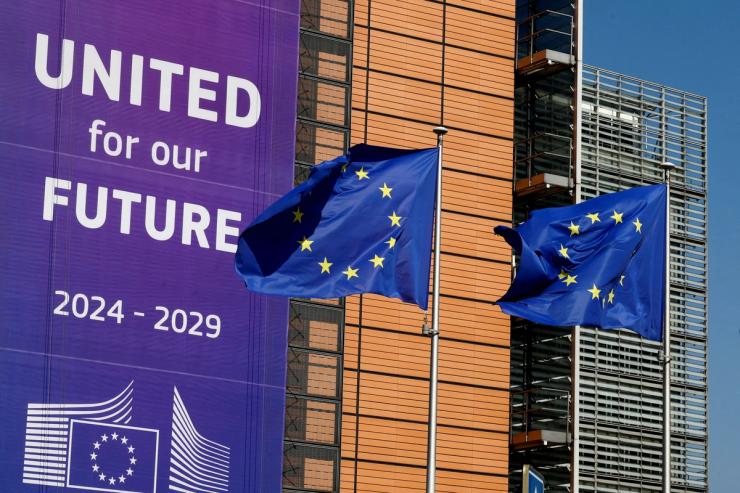Hadley’s view
The biggest threat to Europe isn’t Vladimir Putin. It isn’t Donald Trump. In fact, it isn’t even coming from outside the European Union.
No, the biggest threat to Europe is bubbling up from within, and its leaders don’t even realize it: The continent has gotten so enraged at foreign leaders threatening its borders that it has lost sight of how far it has fallen — and how quickly it must save itself.
For years Europe struggled to grasp that energy security and national security are one and the same. That ended with Vladimir Putin’s invasion of Ukraine, and the loss of the cheap gas that had powered European manufacturers. After more than three years of war, it is clear that neither the US nor Europe will supply sufficient weapons, manpower, or money to defeat Russia: Out of an audience of some 100 delegates at the GLOBSEC conference in Prague last week, the only one who was still betting that US President Donald Trump can achieve peace was Ukraine’s Foreign Minister Andrii Sybiha — yet even he told me that he no longer believed in miracles.
Now, Europe is fighting facts again, this time about itself.
In a report last year, former Italian Prime Minister and ex-European Central Bank President Mario Draghi warned of the danger Europe’s economic stagnation poses for its sovereignty. He told us that high energy costs and taxation are crippling European competitiveness.
The continent’s latest argument — that billions of additional dollars for European defense will dig the continent out of the doldrums — has merit, and no doubt governments turning on the taps should expect economic gains: Germany’s Kiel Institute estimates Europe’s long-term productivity could rise by as much as 0.25 percent for every 1 percent of GDP spent on military research.
But that’s hardly enough to kick start the continent out of “managed decline,” nor is it likely to make a dent in wide-ranging competitions with countries like the US and China.
And while the idea that strengthening the continent’s military industrial complex could be the catalyst for an innovation boom is possible, deeper issues remain: You cannot tax and regulate your way to growth. Nor can you expect to project strength on trade, manufacturing, or defense when you lack the competitiveness of your rivals.
So what’s holding Europe back?
At a side session in Prague, I questioned a roundtable of policy advisors, including an ex-finance minister and a former Nato deputy secretary general. Their nationalities: British, Czech, German, Romanian, and Slovak.
They all agreed Europe has the economic heft to get good trade deals, but they didn’t know, or disagreed on, how to do so. They talked about the need for each country to “focus on its strengths” but couldn’t lay out a plan to do so. And when it came to addressing high energy prices, they agreed that a single EU market was essential, despite agreement amongst energy executives that it can’t and shouldn’t be attempted.
The highlights (or lowlights, depending on your persuasion) though came on nuclear energy, with the German on the panel blaming the French (not represented) for cutting back the availability of nuclear energy for German consumption, thus making it more expensive, whilst refusing to own the blame: It is Germany’s shutdown of nuclear reactors that is hampering industrial output, not French restrictions. And a question about fostering innovation took a nostalgic turn, as panelists remembered the days when Volkswagen created the Beetle, a car for the masses — instead of the current situation, where the company’s failure to invest in EVs has Chinese firms putting them out of business.
Ultimately, I was left wondering what lessons were really learned from putting all the energy eggs in Putin’s basket if, three years on from the invasion of Ukraine, Europe continues to amble along without any concrete action towards increased productivity and economic growth.
Russia was able to put Europe on the back foot precisely because of the continent’s failure to accept that economic security — the ability to support, secure, and manage its supply chains — is a prerequisite for national security.
That, not an invading strongman or a protectionist president, is Europe’s greatest threat.
Room for Disagreement
Economic growth may be languid in Europe, but that doesn’t mean it’s not an attractive investment destination: In fact, a growing number of major investors are opting for the EU over the US, as much for the continent’s potential as for the uncertainty across the Atlantic. The latest example is Aware Super, one of Australia’s largest pension funds with $124 billion under management, whose chief executive told the Financial Times that she saw a “really significant opportunity for Europe and the UK.”


